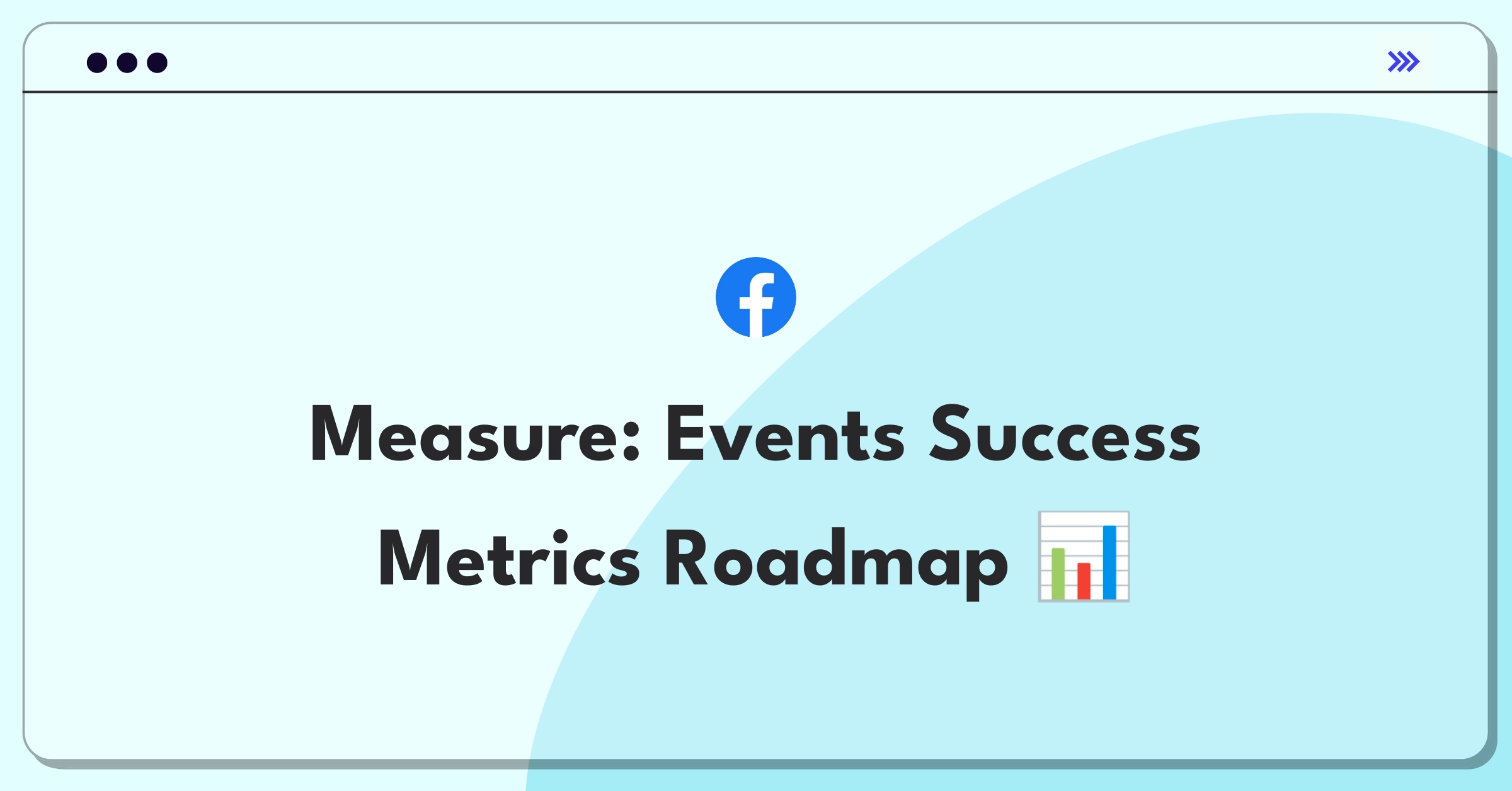Introduction
Defining success for an events product requires a comprehensive approach that considers multiple stakeholders and metrics. To address this product success metrics challenge, I'll follow a structured framework covering core metrics, supporting indicators, and risk factors while considering all key stakeholders.
Framework Overview
I'll follow a simple success metrics framework covering product context, success metrics hierarchy.
Step 1
Product Context
The events product is likely a platform that allows users to discover, create, and manage events. Key stakeholders include:
- Event organizers: Looking to promote and manage their events efficiently
- Attendees: Seeking interesting events and seamless booking experiences
- Advertisers: Wanting to reach targeted audiences
- Platform owners: Aiming for growth, engagement, and monetization
User flow typically involves:
- Discovery: Users browse or search for events
- Engagement: Users view event details, save interests
- Action: Users purchase tickets or RSVP
- Post-event: Users leave reviews, share experiences
This product fits into the company's broader strategy by fostering community engagement, generating valuable user data, and potentially creating new revenue streams.
Compared to competitors like Eventbrite or Meetup, our product might differentiate through unique features, better local focus, or integration with other company services.
Product Lifecycle Stage: Assuming this is an established product, it's likely in the growth or maturity stage, focusing on expanding market share and optimizing user experience.
Subscribe to access the full answer
Monthly Plan
The perfect plan for PMs who are in the final leg of their interview preparation
$66.00 /month
- Access to 8,000+ PM Questions
- 10 AI resume reviews credits
- Access to company guides
- Basic email support
- Access to community Q&A
Yearly Plan
The ultimate plan for aspiring PMs, SPMs and those preparing for big-tech
- Everything in monthly plan
- Priority queue for AI resume review
- Monthly/Weekly newsletters
- Access to premium features
- Priority response to requested question


.png)